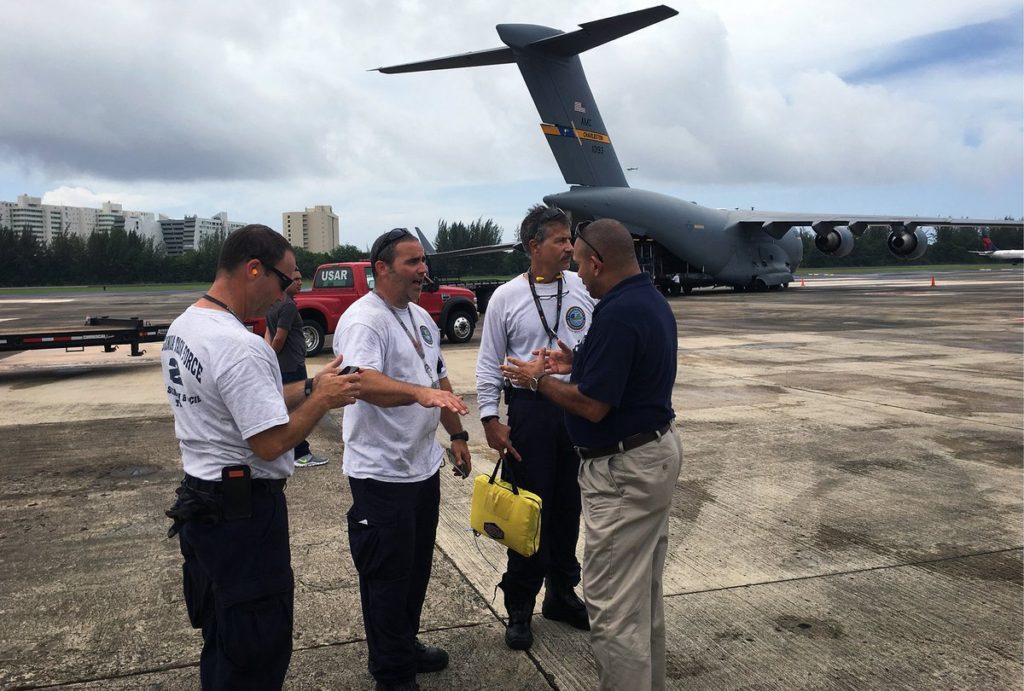CHRISTIANSTED – Since hurricanes Irma and Maria devastated the territory in September,
federal assistance has been “consistently flowing to survivors and communities to repair, recover and
rebuild. So far, more than $456 million in federal funding has been provided.”
The Federal Emergency Management Agency (FEMA) continues to coordinate with the territorial
government, federal and local partners, the private sector, and voluntary organizations to meet
community recovery needs. Disaster survivors who have not registered with FEMA yet, should do so by
the Jan. 8, 2018 deadline.
“As the disaster assistance registration deadline approaches, we want to reassure residents that we
remain committed to helping the U.S. Virgin Islands rebuild their communities for as long as it takes,”
said FEMA Federal Coordinating Officer William Vogel.
To date, more than 37,000 Virgin Islanders have registered for disaster assistance and FEMA has
provided nearly $46.5 million in household grants to help pay for rental housing, home repairs and other
serious disaster-related expenses.
The U.S. Small Businesses Administration (SBA) has approved more than $291.5 million in disaster
assistance loans, with more than $265.9 million for home loans for both homeowners and renters and
more than $25.6 million for business owners. Survivors may also be eligible for low-interest disaster
loans from the U.S. Small Business Administration (SBA) which offers assistance to homeowners,
renters and businesses after a disaster. Jan. 8, 2018 is also the physical damage deadline to submit the
SBA disaster loan application.
In addition to household grants and SBA loans to disaster survivors, more than $118.3 million in federal
recovery dollars have been approved for power, public buildings, emergency repair work for roads, and
debris removal. More than $4.4 million in public assistance has been obligated for Hurricane Maria
throughout the territory and more than $113.9 million for Hurricane Irma.
FEMA Public Assistance grants have provided funding to the Virgin Islands Water and Power Authority
for emergency repairs of transmission and distribution lines throughout the islands, the Department of
Public Works for debris removal, and reimbursement to other government agencies performing
life-safety missions. In the coming months, FEMA Public Assistance will be working with local officials
to determine project costs for damage to public buildings and infrastructure.
Now that connectivity is returning to the territory survivors can register at DisasterAssistance.gov or by
calling 800-621-3362. Individuals who have a speech disability or hearing loss and use TTY should call
800-462-7585 directly. Those who use 711 or Video Relay Service (VRS) may call 800-621-3362.
For information on SBA loans call 800-659-2955 or disastercustomerservice@sba.gov. Survivors who
are deaf or hard of hearing may call TTY 800-877-8339.
Disaster recovery assistance is available without regard to race, color, religion, nationality, sex, age,
disability, English proficiency or economic status. If you or someone you know has been discriminated
against, call FEMA toll-free at 800-621-3362 (voice, 711/VRS – Video Relay Service)
(TTY: 800-462-7585). Multilingual operators are available (press 2 for Spanish).
FEMA says its mission is to support our citizens and first responders to ensure that as a nation we work
together to build, sustain, and improve our capability to prepare for, protect against, respond to,
recover from, and mitigate all hazards.
Following major disasters, the U. S. Small Business Administration (SBA) is the primary source of
Federal funds for long-term recovery assistance. This assistance is in the form of low-interest loans and
is available to non-farm businesses of all sizes, private nonprofit organizations, as well as homeowners
and renters with property damaged by the disaster.
Follow us on social media at twitter.com/femaregion2 and www.facebook.com/FEMAUSVirginIslands.
To donate or volunteer, contact the voluntary or charitable organization of your choice through the
National Voluntary Organizations Active in Disaster (NVOAD) at www.nvoad.org.
For those who wish to help, cash donations offer voluntary agencies the most flexibility in obtaining the most-needed
resources and pumps money into the local economy to help businesses recover. The Community Foundation of the Virgin Islands (CFVI) also has the “Fund for the Virgin Islands” at www.USVIrecovery.org




